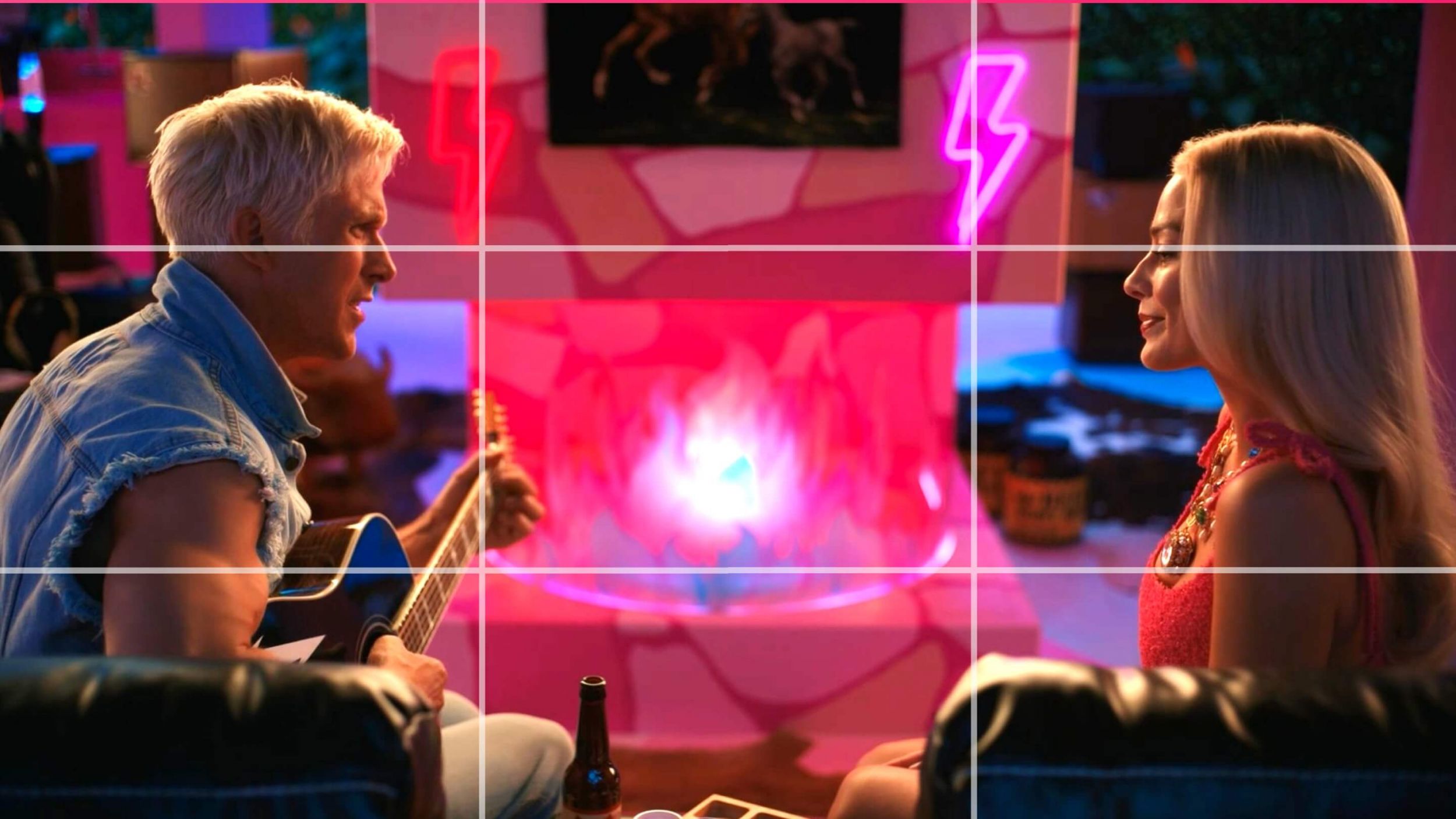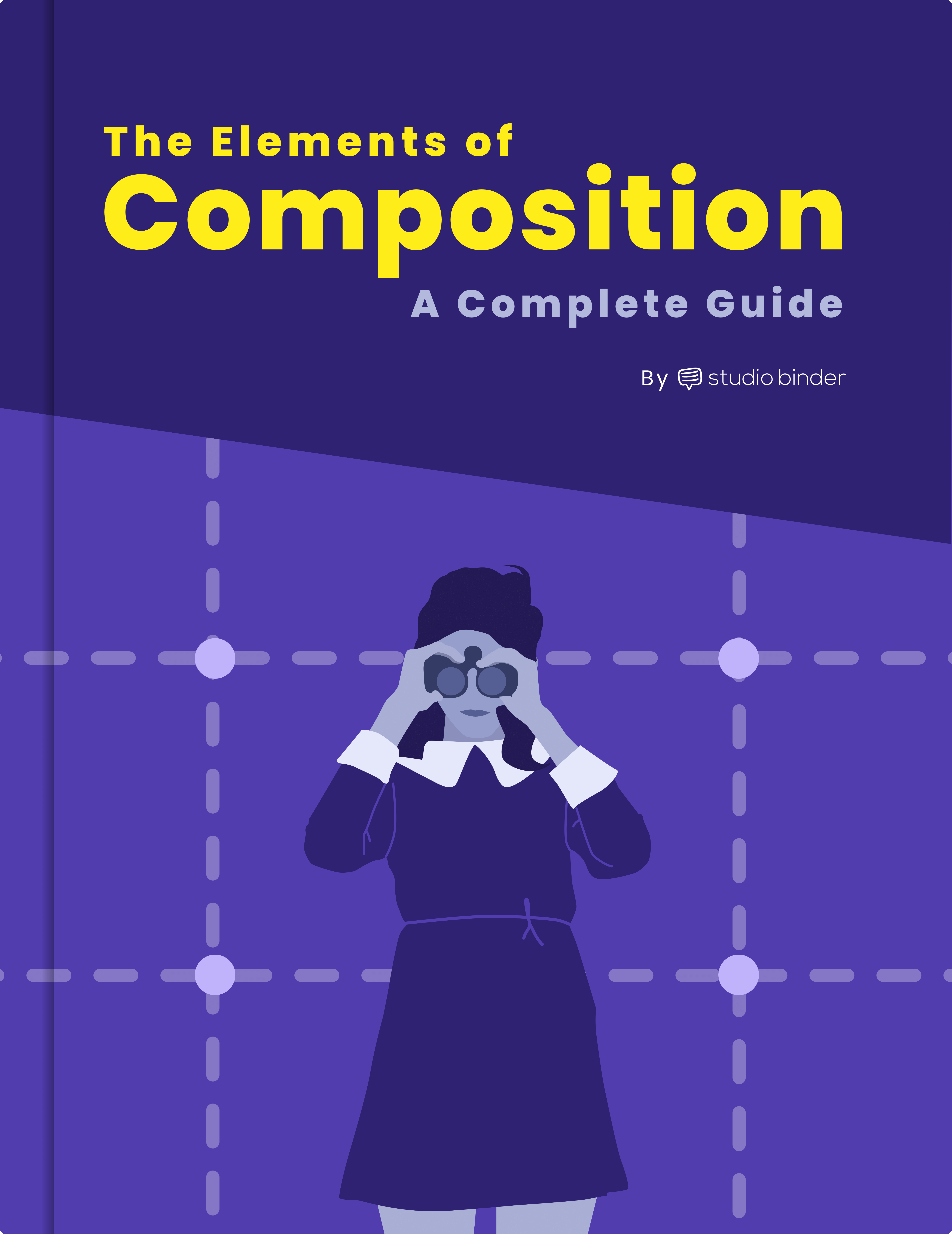What is the rule of thirds? The rule of thirds is an effective way to frame the elements in your scene so that the resulting image is much more visually captivating. Like most other filmmaking “rules,” it’s not really a rule at all — more of a golden guideline.
It’s also an incredibly easy rule to try: any level photographer or cinematographer can use it. First, let’s define it by showing you some rule of thirds examples, then explore how it’s used in film.
Rule of Thirds Definition
Defining the Rule of Thirds
This compositional rule is perhaps the most well-known and commonly employed photographic and cinematographic technique. The rule provides a reliable guideline for framing your shots. It's also an excellent starting point for beginners who hope to dip their toes into the many rules of composition.Rule of Thirds Definition
What is the Rule of Thirds?
The Rule of Thirds is the process of dividing an image into thirds, using two horizontal and two vertical lines and placing the subject of your photo at the intersection of those lines.
When you position the most important elements of your image at these intersections, you produce a much more natural image (in theory). It is also suggested that any horizon is placed on either the top horizontal line or bottom horizontal line.
The Rule of Thirds grid is a way to:
- Use composition techniques that are in line with what’s naturally pleasing to the eye
- Creatively use negative space
- Create conversation between the subject and background
The imaginary rule of thirds grid can be seen below. Notice the most critical elements fall on the lines or where the lines intersect. Also, notice that the horizon in the rule of thirds grid sits on the top horizontal line.
Placing your elements on or near these intersecting points on the rule of thirds grid can create a visual conversation between them.
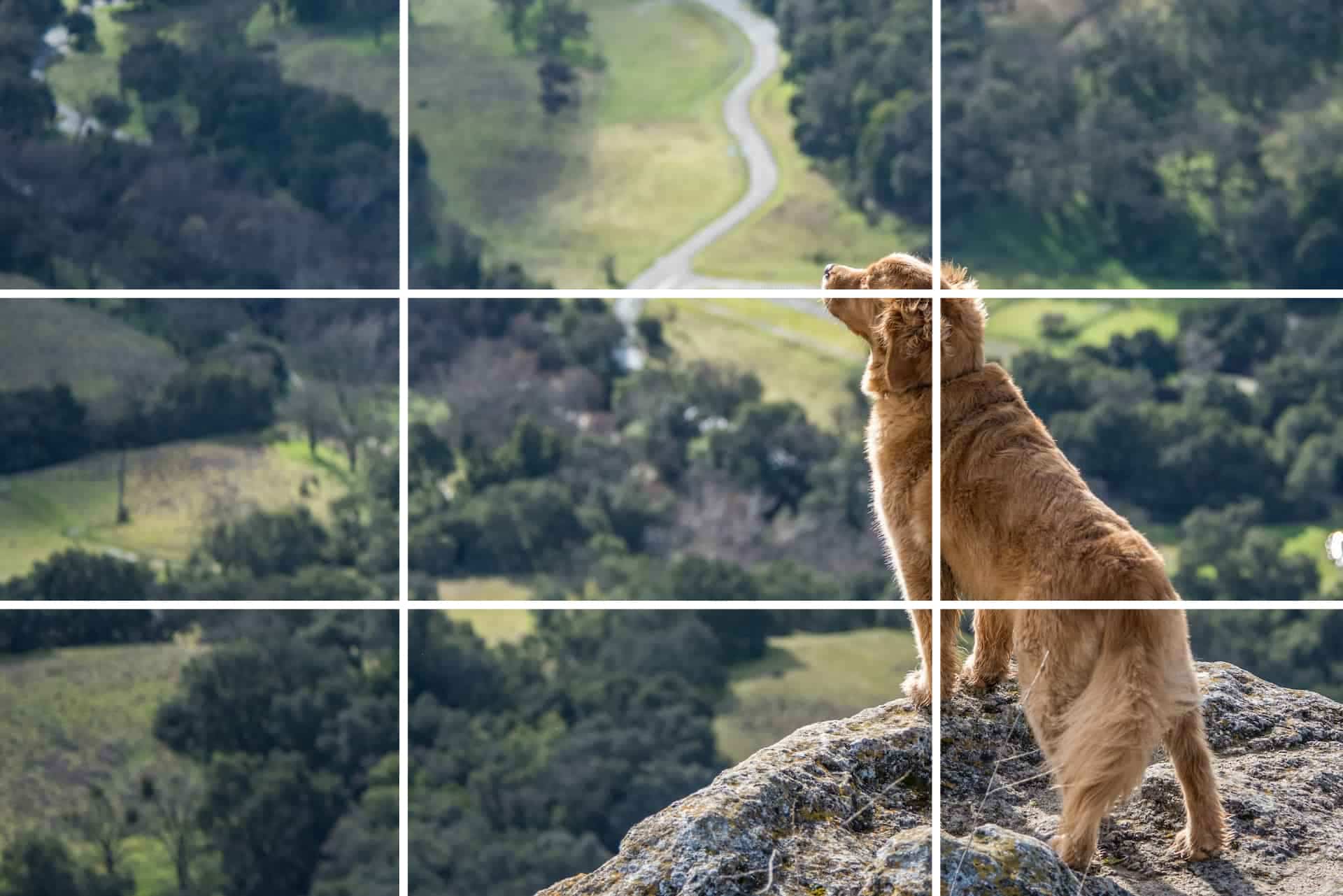
Beautiful Scenic Composition (Capture Landscapes) • Rule of thirds grid
Placing your elements on or near these intersecting points on the rule of thirds grid can create a visual conversation between them. There is often a richer dynamic between subject and object.
What is the Rule of Thirds for Filmmakers?
Rule of Thirds Examples in Cinema
So, we’ve unpacked some Rule of Thirds photography examples. But filmmaking takes these composition considerations to a whole other level.
That’s not necessarily because it’s more difficult in one medium or another, but because it’s more time consuming and particular. Of course, films are motion pictures. So, a film camera is especially responsible for engaging audiences and directing their eyes.
The best shots in cinema are the ones whose composition reflects the story they’re telling. And the emotion and tension of any given scene is enhanced with intentional subject and object placement.
To explore just what is the rule of thirds’ complex role in filmmaking, watch this video on how such films as Mission Impossible: Fallout, The Avengers, and The Notebook, use it to keep audiences engaged throughout manhunts, love scenes, and everything in between.How the rule of 3rds gets trickier when you jump from photos to film
When Ethan Hunt (Tom Cruise) sprints across rooftops in Mission Impossible: Fallout, director Christopher McQuarrie uses and breaks this rule constantly.
While most of the shots do keep the horizon on one of the horizontal lines, Hunt is often seen right in the middle of the frame, breaking the rule effectively to show what surrounds him.
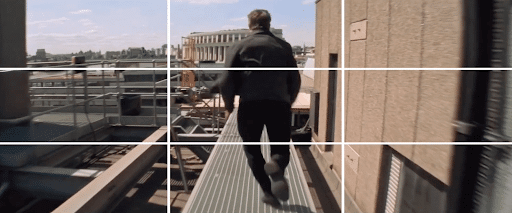
A frame from Mission Impossible: Fallout
A key piece of clever composition is in the transitions between shots. Right as Ethan jumps off the roof, we’re met with this shot:
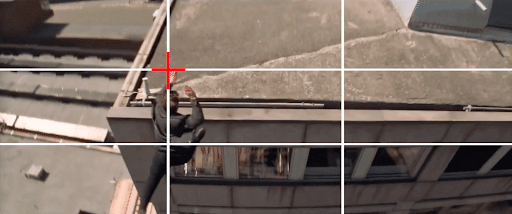
Transitions between shots heighten what’s at stake
Here, we see how the rule of thirds is a way to effectively elicit tension and define the relationship between the character and what’s at stake.
We threw the scene into StudioBinder's shot listing software to show you how you might map out each composition like McQuarrie. (Bonus: To fully appreciate how he stitches these transitions together, pretend that the rule of thirds grid is placed over each shot.)
Rooftop Chase Sequence • View Full Shot List
Here’s another example that uses the rule effectively:
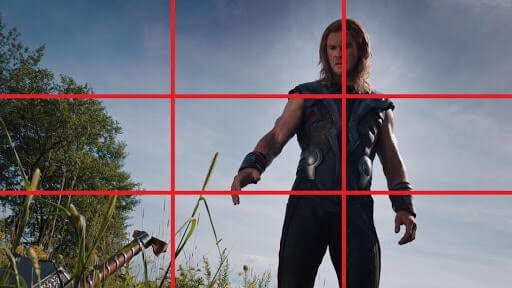
Hammer time!
This fairly basic example from The Avengers gives us a unique perspective, while providing narrative context and heightening tension.
What is the Rule of Thirds?
Breaking the Rule of Thirds
Breaking the rule of thirds can also be powerful if that approach jives with your directorial intent. Here are a few ways you can break the rule:
Center your subject: Lean into symmetry by placing your subject in the middle of your frame.
Lean into discomfort: If your character is just slightly off-center, or pushed all the way to the side, it can create an uneasy feeling in the viewer. If this is the goal of your shot, it’s worth trying.
Extreme close-up: If your subject totally fills the frame, you may not have the chance to adhere to the rule of thirds.
Establish pattern: This often works in tandem with centering a subject. If you aren’t using the rule of thirds, maybe you can create repetition to maintain a visually appealing aesthetic.
No one does center framing better than Stanley Kubrick and Wes Anderson. But both filmmakers make use of the technique in completely different ways.
Kubrick’s center framing is often used for dramatic effect. Consider this example from The Shining: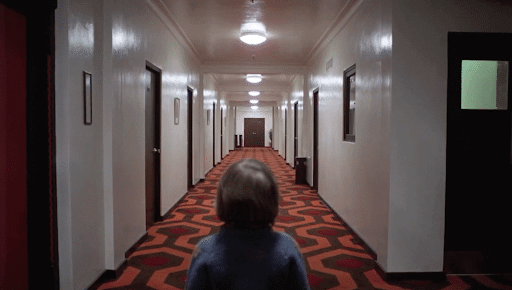
Stanley Kubrick breaks it in The Shining
Here, Danny Torrance (Danny Lloyd) is forced to confront what lies ahead of him in The Overlook Hotel, and center framing allows us to feel the creepiness of that experience with him.
Anderson breaks the rule of thirds almost all the time — so much so that it’s been accepted as one of his trademarks. Audiences are generally OK with him breaking the rule because his visuals mesh perfectly with his eccentric characters and settings as a result.
This video focuses exclusively on Wes Anderson’s symmetry & center framing:
Wes Anderson Symmetry & Editing Techniques • Subscribe on YouTube
So, try applying rule of thirds photography and filmmaking techniques in your own work. You can always break the rule, but make sure your choice is determined by a firm grasp of the rule of thirds definition, and by what’s most beneficial to the shot and overall narrative.
Now that you have a deeper understanding of the rule, pay close attention to the films you love and how directors and cinematographers use composition to better tell their stories.
For a deep dive into all the elements of composition, download our FREE Ebook: Elements of Composition in Art, Photography & Film.
Free downloadable bonus
FREE Download
The Complete Guide to Composition Elements
When you master composition, you master the ability to tell a story, create a mood or deliver a message in a single image. Download our FREE e-book that covers the various elements of composition and the relevant techniques you can use to arrange, and compose the perfect image.
Up Next
Rules of shot composition
Ready for more rules? (Just kidding, they’re more like considerations... but ones you should absolutely know). Unless you’re writing a novel, composition is how you tell your story. It’s just as important as the writing itself. Next, we’ll explore the Rule of Shot Composition.
Up Next: Rules of Composition →
Showcase your vision with elegant shot lists and storyboards.
Create robust and customizable shot lists. Upload images to make storyboards and slideshows.
